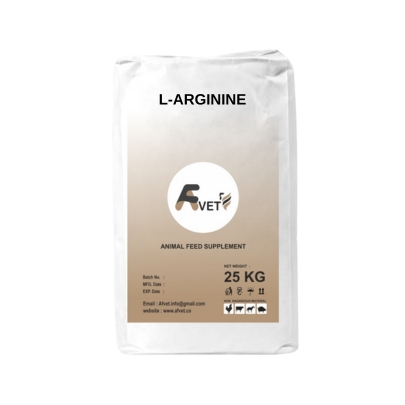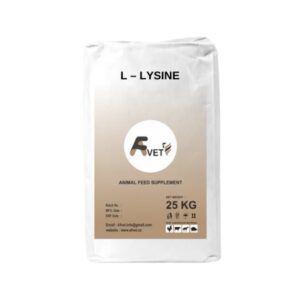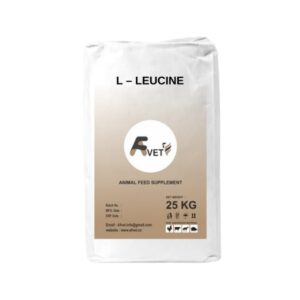Description
L – Arginine is a white crystalline powder used by the muscles as an additional source of energy and is one of the main components in the growth & synthesis of body tissues. L-Arginine improves the efficiency and quality of meat by increasing the amount of protein and reducing fat. The amino protein has a positive effect on brain function, it is necessary to maintain normal nitrogen metabolism in the body. Various research studies show that dietary supplementation with L – Arginine is beneficial for enhancing the reproductive performance of pigs, enhancing protein deposition and postnatal growth of milk-fed piglets (10), normalizing plasma glucose etc.
Applications & Uses
- L-Arginine (Arg) plays a central role in the nitrogen metabolism (e.g., syntheses of protein, nitric oxide, polyamines, and creatine), blood flow, nutrient utilization, and health of ruminants.
- Adding feed-grade L-arginine helps in wound recovery, ammonia excretion, improvement of immune function, secretion of hormones, and so on.
- L-Arginine is related to production of nitric oxide, urea, polyamine
(putrescine, spermidine, and spermine), creatine, and amino acids (proline and glutamate).
- Especially, L-arginine is the only amino acid that can directly synthesize nitric oxide.
Nitric oxide mainly works on blood vessel relaxation and this helps improve the health of animals.
- Several nutritionists have demonstrated the importance of amino acids in broilers’ growth, muscle development, and meat yield.
- Arginine is known to be involved in several physiological functions like growth and immunity due to its capacity to act as a substrate for nitric oxide, creatine, ornithine, glutamine, and some other molecules.
- Chickens are uricotelic animals, they are unable to obtain endogenous arginine. Therefore, chickens rely on the amino acid content of the feedstuffs to supply the arginine requirements.







Reviews
There are no reviews yet.